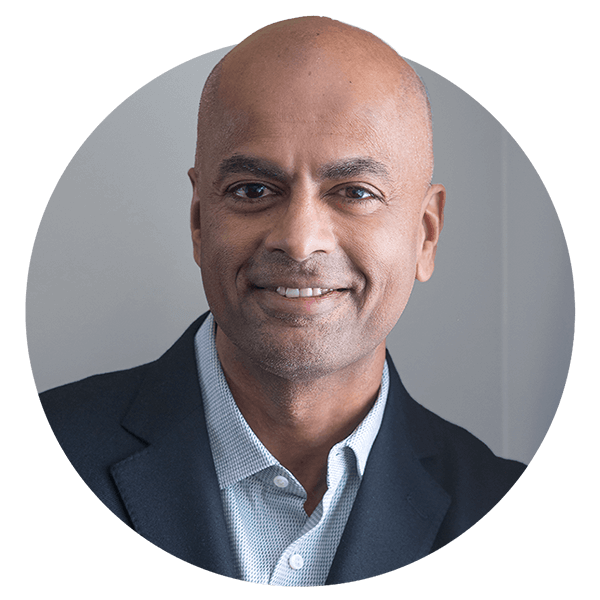Welcome to the 58th edition of #theFutureReadyAdvisor Newsletter!
Subscribe & join the conversation. Share comments and feedback.
In aviation, they teach pilots a principle that has already saved countless lives: “When in doubt, unlearn what you think you know.”
The story of Air France Flight 447 illustrates this painfully. In 2009, when the aircraft’s speed sensors failed over the Atlantic, the pilots relied on deeply ingrained training that had always served them well—pulling back on the control stick when the plane seemed to be losing altitude. But at high altitude in turbulent and freezing conditions, this conventional wisdom became catastrophically wrong. The aircraft stalled, and all 228 people on board perished.
The crash investigation revealed something profound: the pilots didn’t lack skill or knowledge. They had followed their training. But what had worked flawlessly in countless situations had suddenly become deadly—and they couldn’t unlearn it fast enough.
We’re navigating similarly treacherous skies in the financial world today. The maps we’ve used for decades don’t match the terrain anymore. Interest rates, market structures, client expectations, technological capabilities—all have transformed dramatically. And yet, many of us continue to rely on the wisdom that served us well in a different era.
The greatest challenge we face isn’t learning new skills—it’s unlearning outdated mindsets.

The Gravitational Pull of Yesterday’s Wisdom
I experienced this firsthand when launching a wealth management platform after the 2008 financial crisis. For decades, the industry had operated on a core assumption: that sophisticated investment strategies and market outperformance were the primary drivers of client satisfaction and loyalty.
Our entire service model, communication approach, and value proposition were built around this belief. It was baked into our DNA—how we hired, what we measured, how we structured client meetings.
But the data told a different story. Study after study showed that clients rarely left advisors because of investment performance. They left because they didn’t feel understood, didn’t believe their advisor was acting in their best interest, or didn’t see the value in the relationship.
The conventional wisdom wasn’t just slightly off—it was fundamentally wrong. And unlearning it was far more difficult than I anticipated.
Because unlearning isn’t just about adopting new information—it’s about dismantling mental models that have served you well for years or decades. It’s about questioning assumptions so deep you don’t even recognize them as assumptions. They’re just “how things are.”
Three Outdated Mindsets Holding Us Back
In today’s environment of constant change and deep uncertainty, several long-held beliefs are actively undermining our ability to serve clients effectively:
1. The Expert Paradigm
For generations, financial advisors have positioned themselves as experts with answers. We built careers on knowing—or appearing to know—what would happen next in markets, economies, and regulations.
This mindset has become increasingly dangerous in a world where the pace of change outstrips anyone’s ability to predict it reliably. The honest answer to many client questions is no longer “Here’s what will happen” but “Here’s how we’ll navigate whatever happens.”
I remember sitting across from a client in 2016 who asked about the US election. I caught myself about to deliver a confident prediction based on numerous polls. Instead, I paused and said, “The truth is, the election could move in ways none of us anticipates. What’s more important is building a plan that can withstand various scenarios.”
That moment of vulnerability—admitting the limits of my knowledge—actually strengthened our relationship rather than weakening it. It shifted our conversation from prediction to preparation, from certainty to resilience.
2. The Solution-First Mentality
Our industry trains advisors to be problem-solvers. We are taught to quickly diagnose issues and prescribe solutions. This creates a dangerous pattern: we often begin formulating answers before fully understanding the question.
I realized how deeply embedded this mindset was when working with a family that had complex intergenerational wealth transfer needs. In our first meeting, I caught myself mentally constructing solutions before they’d even finished describing their situation. My eagerness to demonstrate expertise was actually preventing me from listening deeply enough to understand what they truly needed.
Unlearning this solution-first reflex required conscious effort. I had to train myself to stay in the question longer, to embrace the discomfort of not immediately knowing the answer. The quality of our eventual solution improved dramatically as a result.
3. The Scarcity Mindset
Perhaps most pervasive is the belief that advisor value is primarily derived from exclusive access to products, strategies, or information. This scarcity-based model made sense when information was genuinely scarce and inaccessible to the average investor.
In today’s world, where anyone can access sophisticated investment vehicles and mountains of financial information with a few clicks, this mindset has become obsolete. Yet it continues to shape how many advisors position their services and structure their fees.
Unlearning this requires a fundamental shift toward an abundance mindset—where advisor value comes not from hoarding scarce resources but from helping clients navigate overwhelming abundance. Our role is increasingly about curation, contextualization, and facilitating comprehension.
The Unlearning Process: Four Essential Steps
How do we release outdated wisdom while preserving what remains valuable? I’ve found these four steps critical in my own unlearning journey:
1. Question Your Certainties
Begin by identifying your strongest convictions about client service, investment approaches, or business models. These are likely the areas where unlearning is most needed—and most difficult.
Ask: “What if the opposite of this belief were true? What evidence would support that alternative view?” This isn’t about abandoning your expertise, but about holding it more loosely, creating space for new possibilities.

2. Seek Disconfirming Evidence
Our brains naturally seek information that confirms existing beliefs. Counter this by deliberately seeking evidence that challenges your current understanding.
One practice that transformed my thinking was regularly asking clients: “What’s one thing we could do differently that would significantly improve our service to you?” The answers frequently contradicted what I “knew” clients valued most.
3. Test Small Changes
Rather than wholesale transformation, experiment with targeted modifications to your approach. These small tests make unlearning less threatening and provide concrete data to support or challenge existing mindsets.
For example, when I began questioning the traditional client onboarding process focused on risk tolerance questionnaires and asset allocation models, we tested a completely different approach with a small group of prospects. Instead of starting with investment preferences, we began with in-depth conversations about life goals and personal values. The shift was dramatic—clients engaged more deeply, shared more meaningful information, and reported significantly higher satisfaction with the process.
4. Build a Learning Community
Unlearning is extraordinarily difficult in isolation. Create or join communities where questioning assumptions is encouraged and diverse perspectives are valued.
When we launched our goals-based investing platform, we deliberately sought input not just from financial professionals but from potential clients, behavioral economists, and even people with no connection to the financial world. This diverse community helped us see blind spots in our thinking that we couldn’t have identified on our own. One of our most valuable insights—that clients care far more about achieving specific life goals than beating market benchmarks—came from conversations with people who had never worked in finance but had clear views on what they wanted their money to accomplish.
Implications for Advisors: The Courage to Begin Again
The financial advice industry stands at a crossroads. The skills and mindsets that brought us here won’t take us where we need to go. This presents both challenges and opportunities.
The advisors who will thrive in the coming decade aren’t those with the most experience or the most knowledge—they’re those most willing to question what they know, to release what no longer serves, and to begin again with a beginner’s mind.
This doesn’t mean discarding everything. Wisdom isn’t binary—it exists on a spectrum from “still essential” to “completely obsolete”. The art is in discerning where each element of your approach falls on that spectrum.
For example, the fundamental importance of trust in client relationships remains unchanged. But how we build that trust has transformed dramatically in an era of information abundance and institutional skepticism.
Similarly, the value of diversification endures, but implementing it effectively requires new approaches in markets where traditional correlations have shifted and alternative investments have democratized.
The advisors who will lead our industry forward are those with the courage to ask: “What do I need to unlearn to better serve my clients in this new reality?”
🎙️ Excited to announce my first solo podcast episode! Join me as I dive deeper into navigating uncertainty and share practical frameworks to help you thrive in unpredictable environments. Subscribe now so you don’t miss it!
📚 This theme of unlearning and thriving in uncertainty is central to my forthcoming book. Stay tuned for more details in the coming weeks.
💡 Want a head start? Download my free “Uncertainty Advantage” guide and checklist to begin implementing these principles today.
Remember: In times of radical change, it’s not the strongest or the most intelligent who survive, but those most responsive to change. And sometimes, being responsive to change means having the courage to unlearn.
#theFutureReadyAdvisor #UnlearningWisdom #AdvisoryExcellence


